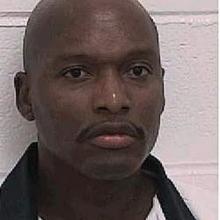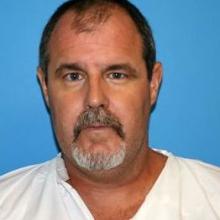execution
It’s 93 degrees in Texas today. And Rev. Jeff Hood is walking 200 miles across the state. What would compel somebody to do that? He wants to end the death penalty … and he is not alone.
Rev. Jeff Hood is a Southern Baptist pastor, deeply troubled by his denomination’s stance on capital punishment. And he is troubled because he lives in the most lethal state in the U.S. Texas has had 515 executions since the reinstatement of the death penalty in 1976 – the next state in line is Oklahoma with 111. That means Texas is responsible for 37 percent of the executions in the U.S. Jeff has been a longtime organizer and board member for the Texas Coalition to Abolish the Death Penalty, a movement that is gaining some serious momentum these days.
A growing number of Texans — and Americans in general — are questioning the death penalty. A recent ABC poll shows we are over the tipping point, with more than half of Americans being against the death penalty and in favor of life in prison, putting death penalty support at a new low. For some it is the racial bias – in Texas it is not uncommon for an African American to be found guilty by an all-white jury. In fact, in considering “future dangerousness,” a criteria necessary for execution in Texas, state “experts” have argued that race is a contributing factor, essentially that someone is more likely to be violent because they are black – prompting articles like the headline story in the New York Times about Duane Buck: “Condemned to Die Because He is Black.”
In 2009, after moving to Southern California, a neighbor, Tom Rotert, who is an attorney, asked about my reporting on wrongful convictions and wrongful executions while I was at the Chicago Tribune.
I explained that along with my fellow reporter Steve Mills, we had documented numerous wrongful convictions in Illinois and the executions of two innocent men in Texas — Carlos DeLuna and Cameron Todd Willingham.
“You know who the ultimate wrongful execution is, don’t you?” Rotert asked. “It was Jesus Christ. They killed the son of God.”
The crucifixion of Jesus Christ doesn’t come up very often in discussions about wrongful convictions in America, but as California voters prepare to go to the polls to vote on Proposition 34 which would ban the death penalty in this state, two lawyers — one from Chicago and one from Minneapolis — are doing exactly that.
Despite protests not only from jurors who conivicted him but also from his victim’s family, Warren Hill, a 52-year-old mentally disabled man convicted of murder, is scheduled to be executed by lethal injection on July 23 in Jackson, Ga.
In 1991, a jury found Hill guilty in the bludgeoning to death a fellow inmate, Joseph Handspike, and sentenced him to death. Hill had been serving a life sentence for the 1986 killing of his girlfriend at the time of Handspike's death.
Hill has an I.Q. of about 70, leading a state judge to find him "mentally retarded" by a “preponderance of the evidence.”
While Georgia — as the rest of the United States — has banned the execution of mentally retarded inmates, the state has a stricter standard that requires proving mental retardation “beyond a reasonable doubt.” By that standard, the Georgia Supreme Court overruled the judge's finding of mental retardation, reversed the decision, and reinstated Hill’s death sentence, which originally had been set for today.
Tony Rackauckas, Orange County District Attorney, held a press conference to announce his intent to seek the death penalty for Scott Dekraai, who killed his ex-wife and seven others at Salon Meritage in Seal Beach on Oct. 12.
“There are some cases that are so depraved, so callous, so malignant that there is only one punishment that might have any chance of fitting the crime," said Rackauckas. “When a person, in a case like this, goes on a rampage and kills innocent people in an indiscriminate bloody massacre, I will of course seek the death penalty.”
He added, “This is the only way our society can get anything approaching justice for the victims, their families, the town of Seal Beach, and the larger community.”
If justice means putting Dekraai on a gurney and executing him, the victims, their families and everyone else hoping for that outcome should face the cold hard fact that they are in for a long wait.
 The news cycle often moves so quickly that very often big news stories are forgotten within a day, sometimes even more quickly.
The news cycle often moves so quickly that very often big news stories are forgotten within a day, sometimes even more quickly.
I prayerfully hope that this is not and will not be the case with the story of Pastor Youcef Nadarkhani, the Iranian Christian leader who has been sentenced to death for refusing to recant his religious beliefs and convert to Islam.
Arrested in 2009 on a charge of apostasy, he has spent two years in jail, with his wife also being jailed on similar charges last year.

By the time someone figured out what happened, the deadline to appeal the denial of his post-conviction appeal had passed. So far, the state of Alabama has successfully argued that despite the mail room debacle, Maples should have been aware -- through his local counsel -- that the clock was ticking and that he just blew it.
Courts have struggled for years over the question of who should bear the penalty for a lawyer's mistakes or incompetence and the Maples case represents an extreme example of the problem of imputing the mistakes of a lawyer to the client.



